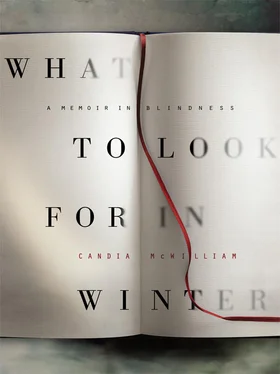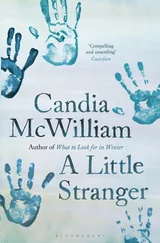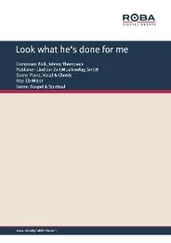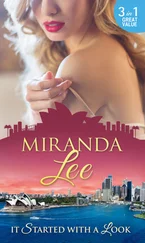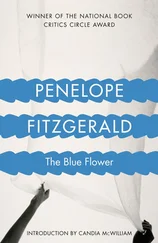Edward Heath was in power. Electricity was rationed and for several evenings a week we were without it. This copy of Vogue fell into my hands. On page seventy-five, an announcement was made about Vogue ’s annual Talent Contest. I’ve always entered competitions, the motive mostly publication or cash. In this case, it is fortunate that my habit was so undiscriminating, or I am sure that I would have been expelled for having entered this one, let alone running away from school for the day without telling anyone to have lunch sitting between Lord Snowdon and Marina Warner (who had on yellow satin hot-pants with a heart-shaped bib).
The competition rules stipulated that all entries be typed, double spaced; I had no typewriter. I wrote and drew my entry after the long school day by candlelight (absolutely forbidden for obvious safety reasons) with fountain pen and (contraband) make-up for colouring in my drawings. There were several parts to the competition, the only compulsory part being to write one’s autobiography. I had no very long life to write about, being fifteen, and caused great offence to my family on all sides by describing my poor stepmother, fatuously, as resembling a ‘beautiful milkmaid’. I also designed a Summer Collection around a moth motif and selected whom, alive or dead, I would ask to dinner. I can remember only Elizabeth I and Evelyn Waugh. I’d never made dinner or held a party.
There were in those days telegrams and I returned to Aldhelmsted East, after that disorientating day at Vogue House in London, to find that I had won by unanimous vote the Vogue Talent Contest for 1970. Thank God, and I mean thank God, the headmistress had also received the news on that very day that I had won a national essay prize sponsored by the Sykes Bequest, the topic to be selected by the entrant, anything at all as long as it was to do with Missionary Work. I had written a long, very boring, wholly invented, essay about smuggling Bibles. It was fictitious but full of detail; never did I feel so grateful for it as when Dame Diana Reader-Harris announced the double news concerning me at prayers the next day; that I had won five pounds in a national essay competition dedicated to Missionary Work and that I had also won a prize given by a magazine called Vogue.
The Vogue prize was a huge sum of money, fifty pounds, but the real prize of that contest remains to this day an astonishing one; every winner of the Vogue Talent Contest is awarded the chance of working on the magazine. What in my case this achieved will be seen; for most people it is an incomparable entry into an impenetrable world and a golden opportunity. I fear that for me it was a reason not to become an academic or a teacher and then it led to many of the things that are worst about, and worst for, me. But that comes later. All I will say for the moment is that magazines are, without a shadow of a doubt, addictive.
‘The Earth is the Lord’s, and all that it contains
Excepting the Western Isles, for they are David MacBrayne’s.’
Anyone who has been to the islands of Scotland will recognise the truth of this. MacBrayne’s run the ferries that are quite literally a lifeline to the islands. Every sheep, every jar of Marmite, every tank of petrol, every cornflake that you consume on an island in the Inner or Outer Hebrides will have been brought there by MacBrayne’s and will consequently have a surcharge that is referred to as ‘the fright’; that is, the freight. There are perhaps only two travellers over the last century of whom I’ve heard, who have travelled between the islands — save of course for those on private transport, yachts or planes and such — under their own steam and these two valiant travellers are a bull who swam from Barra to Vatersay and Hercules the grizzly bear, star of the Sugar Puffs advertisement, who set out on his own after a tiring afternoon’s filming, and made landfall a day or two later with a fine appetite for his next bowl of cereal. It’s probably fortunate they didn’t meet midstream or the food chain might have reasserted its sway.
The first trip I took to Colonsay was on the MV Columba. She was a much smaller vessel than the big drive-on ferries that are now used; vehicles were swung aboard her on davits in a great heavy net and positioned with much swearing and vehemence in the Gaelic by the MacBrayne’s men. The Columba had a writing desk with its own headed writing paper and tea was served, including cake stands, unless the sea got what is called lumpy. That first trip, I was sensibly attired for arrival at a small Scottish island in a voile maxi dress, bare feet and some sunglasses that had snap-in snap-out lenses in a choice of shades: turquoise, peat or rose. For my arrival I selected the rose-tinted spectacles. That crossing was a fair one and I wasn’t sick at all, though I had to visit the Ladies with its astonishingly heavy doors, fit to cope with a bad swell, to reapply my Biba eyeshadow which was also pink and frosted. I have in my life made this journey only twice, I realise, on my own. At the start of this book I thought it was but the once, when I left the island to do my bit for Man Booker, but of course I arrived alone the first time.
Arrival at the pier at Colonsay, or at any other island, is a mixture of a gathering intensely social and ferociously practical. Families reunite, sick people leave for hospital, children depart for school on the mainland, tractors roll off, the dustbin lorry arrives, a wedding cake must be unpacked with utmost care, a new baby may meet its father for the first time, a bull must be unloaded, a funerary wreath disembarked with due dignity, a body, even, must be consigned. So it’s fortunate that I have no recall of my own arrival at Colonsay. Perhaps, if anyone noticed at all, they thought I was a cabaret entertainer who had got on the wrong boat. Oban was not then the sophisticated burgh we now know.
Scalasaig, the port at Colonsay, is, however, inordinately sophisticated. Let no one think that because a community is small, it contains less nuance than a larger one; the reverse is so. There is no end to it; the place never stops. Like all life lived up close, the feeling intensifies with the proximity. The lens is tightened in upon you and your behaviour, your coloration, your profile in flight, your integrity.
There is a big book about the geology, archaeology, botany, ornithology, zoology and highly variegated civilisations of Colonsay and its tidal neighbour Oransay. Its name is Loder on The Islands of Colonsay and Oransay in the County of Argyll. I mention it because once you have a sniff of the place you will want to know more and here I can but represent it with a puff of cloud, a pinch of air, the smell of crushed bog-myrtle, or the call of the corncrake that lives protected within the island’s shores.
Another addiction warning must in fairness be issued at this point: one of the lowest blows about my blindness is that I can no longer really see to read the island’s online newspaper The Corncrake , that once read takes up its place in one’s reading pattern with a good deal more monthly tenacity than many glossy magazines. It is certainly more European-minded than many broadsheets.
As for the island itself, it grows through your circulation like a tree whose pip you have swallowed without knowing it. It is quite possible to make the world of Colonsay. It is an Eden. St Columba drove all snakes from it.
Oransay, which is attached at low tide to Colonsay, is a holy place. If I were told that I might never return alive, I would ask to be placed with the least fuss in a wicker basket and taken to Colonsay for the residence of my soul. Just as long as, mind, it was no bother. The freight on my cadaver might be crippling. Oransay is for other souls, to whom we shall come.
Читать дальше
